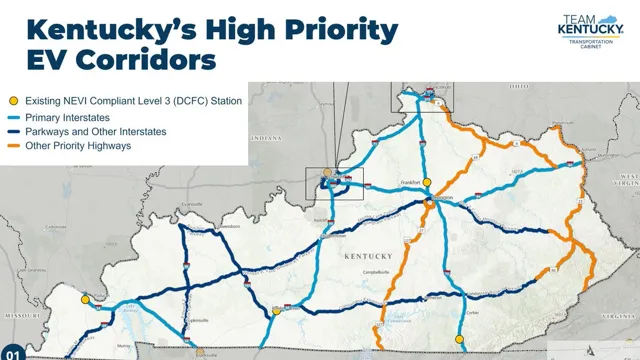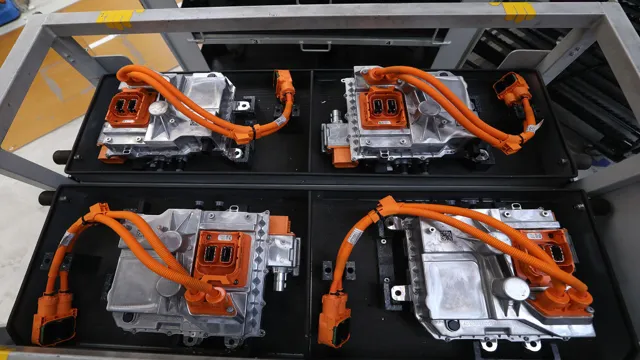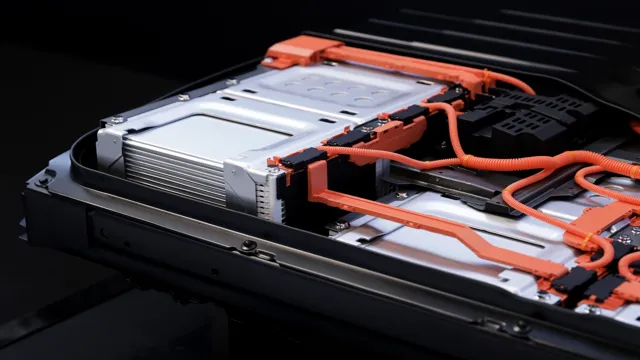From Pricey to Affordable: Tracking the Evolving Electric Car Battery Cost Trend
Electric cars have been gaining immense popularity in the recent past and have been touted as a viable solution to curb pollution and reduce fossil fuel consumption. However, one significant factor that has deterred the widespread adoption of electric cars is the hefty battery cost. The battery is the backbone of an electric car, determining its performance, range, and overall cost.
In this blog, we will delve into the trend of electric car battery costs, highlighting the factors that influence the costs, and how the trend has evolved over the years. Join us as we uncover the past, present, and future of electric car battery costs, and what this means for the future of electric cars.
Overview of Electric Car Battery Costs
Electric car battery cost trend is a popular topic of discussion amongst car enthusiasts and eco-conscious individuals. In recent years, we have witnessed a significant decline in the cost of electric car batteries due to technological advancements and increased competition. However, the cost of the battery still remains the most significant factor that affects the overall cost of an electric vehicle.
The trend shows a decrease in electric car battery cost, and with projections indicating that this trend will continue, we can expect to see more affordable electric vehicles in the future. The cost of electric car batteries is expected to decrease by around 30-40% in the next five years, which in turn will make electric vehicles more accessible to the mainstream market. Despite the decline in battery cost, it’s important to note that the production process of electric car batteries still leaves a significant carbon footprint.
Therefore, manufacturers need to find greener processes to manufacture batteries to ensure the long-term sustainability of electric vehicles.
Historical Trends and Predictions
Electric Car Battery Costs Electric car battery costs have seen a significant downward trend in recent years. In 2010, it cost around $1,000 per kilowatt-hour (kWh) to manufacture these batteries. Today, that cost has dropped to around $137 per kWh.
This decline in cost is largely due to advancements in battery technology, an increase in economies of scale, and improvements in the manufacturing process. As a result, electric cars have become more affordable and accessible to consumers. As we look to the future, the downward trend in battery costs is expected to continue as demand for electric cars grows and technology continues to advance.
Some industry experts predict that the cost of electric car batteries could drop as low as $60 per kWh by 2025, making electric cars even more competitive with traditional gas-powered vehicles. With the decreasing cost of electric car batteries, we may see a significant increase in the number of electric cars on the road in the near future, leading to a cleaner and more sustainable planet.
Factors Affecting Battery Costs
Electric car battery costs are a crucial factor affecting the affordability of electric vehicles (EVs). Many components affect the price of an EV battery, such as materials, manufacturing processes, and economies of scale. The most significant factor affecting the cost of an EV battery is the price of raw materials like cobalt, lithium, and nickel, which make up the majority of the battery’s construction.
The high cost of these materials can increase the price of an EV battery up to $15,000 or more. Additionally, manufacturing processes, such as cell production and battery pack assembly, can affect the final cost. As EV batteries become more popular, economies of scale could help reduce the cost of batteries by spreading the cost across more units.
However, high demand for EV batteries could also raise costs for raw materials and manufacturing, making it important to find sustainable and affordable materials for EV battery production. Ultimately, the cost of an EV battery impacts the price of the vehicle, making it essential to continue researching and developing new materials and technologies to make EVs more accessible to consumers.
Comparing Battery Costs Across Brands
When it comes to purchasing an electric car, one of the most significant expenses is the battery. Battery costs have been a major concern for electric car manufacturers, but the good news is that the cost of manufacturing them has been decreasing over time. According to recent data, it’s estimated that the cost of electric car batteries has decreased by about 89% over the last decade alone.
However, comparing battery costs across brands can be a bit tricky. There are several factors to consider, including the size of the battery, the car’s range, and the manufacturer’s chosen technology. Some brands, such as Tesla, are known for having more expensive batteries due to their superior range and performance.
On the other hand, cheaper electric cars, such as the Nissan Leaf, use less expensive batteries to keep the overall cost of the vehicle more affordable. In general, as electric cars become more mainstream, it’s expected that the cost of batteries across brands will continue to decrease.
Top Electric Car Brands and Their Battery Costs
Electric cars have been growing in popularity in recent years, and with that, the battery costs of various brands have become an important consideration for consumers. Tesla is often recognized as the industry leader in electric cars, with their batteries costing around $156/kWh. However, other brands such as Volkswagen and Hyundai are quickly catching up and have managed to lower their battery costs to around $110/kWh.
On the other hand, some brands like Nissan have struggled to keep up and still have battery costs of around $200/kWh. It’s interesting to see how different brands are tackling the battery cost challenge, with some opting for vertical integration while others focus on partnerships and collaborations. Overall, it’s clear that the cost of batteries will continue to play a crucial role in the success of electric cars, and brand competition will only continue to drive costs down for consumers.
Variations in Battery Costs by Country/Region
When it comes to comparing battery costs across brands, there are a few things to keep in mind. First, battery costs can vary significantly by country or region. For example, batteries may be more expensive in parts of Europe than in Asia due to differences in manufacturing and supply chain costs.
Second, different brands may have varying battery costs depending on factors such as the quality of materials used and the level of technology involved. For instance, a brand that prioritizes high-tech batteries may charge more than a brand that uses simpler, lower-cost batteries. When deciding which brand to choose, it’s important to consider not just the initial cost, but also the long-term value and performance of the battery.
Ultimately, the best battery for you will depend on your specific needs and budget. Whether you’re shopping for a replacement battery for your car, phone, or other device, take the time to do your research and compare costs to get the best deal possible.
How Battery Costs Affects Electric Car Prices
As more and more people shift towards sustainable and eco-friendly modes of transportation, electric cars have become a popular choice amongst car buyers in recent years. One major factor that affects the price of electric cars is the cost of the battery. Across different brands, the price of batteries can vary significantly and ultimately impact the overall cost of the vehicle.
For instance, Tesla’s battery is known to be one of the most expensive in the market, and this is reflected in the higher price tag of their cars. On the other hand, Nissan’s battery is relatively cheaper, which allows them to offer more affordable EVs. As battery technology continues to advance and become more cost-effective, we can expect to see more competitive pricing amongst electric car brands in the future.
However, for now, it’s essential to consider battery costs when comparing different electric car models and brands to make a well-informed purchase decision.
Future of Electric Car Battery Costs
In recent years, we have seen a significant drop in electric car battery costs, and this trend is expected to continue in the future. The cost of electric car batteries has fallen by around 90% over the past decade, and experts predict that this trend will continue, making electric vehicles more affordable for the general public. Advances in technology, increased demand for electric vehicles, and economies of scale in manufacturing are all factors that are driving down the cost of electric car batteries.
As battery technology continues to improve, we can expect electric vehicles to become even cheaper and more efficient in the future. Electric car battery cost trend is what we should watch closely, as it will determine the future of transportation and our planet’s health.
Innovations Driving Down Costs
The future of electric car battery costs looks bright as innovations continue to drive down pricing. One of the main factors contributing to this trend is the development of solid-state batteries, which are more efficient and longer-lasting than their predecessors. Additionally, advancements in manufacturing techniques such as 3D printing are reducing production costs and improving the scalability of electric car batteries.
Another significant factor is the increasing demand for electric vehicles, which is driving competition and innovation in the industry. As more manufacturers enter the market and invest in research and development, we can expect to see even more progress in reducing electric car battery costs in the coming years. Ultimately, this will make electric vehicles more affordable for consumers and help to accelerate the transition to a more sustainable future.
Impact on Adoption of Electric Cars
The future of electric car battery costs is a critical factor that will impact the widespread adoption of electric cars. These battery costs have been decreasing rapidly, making electric cars more affordable and desirable for the average consumer. With advancements in technology, battery costs are expected to continue their downward trend, and this will help spur the adoption of electric cars even further.
As a result, electric cars will become more accessible to the masses, and this will ultimately lead to a reduction in carbon emissions and a more sustainable future. The plummeting battery costs will enable more people to make eco-friendly choices and contribute positively to the planet. Therefore, it’s safe to say that the future looks bright for electric cars, and we can expect to see more of them on the roads soon.
After all, who wouldn’t want a cleaner, more efficient, and more cost-effective mode of transportation?
Conclusion
As the cost of electric car batteries continues to decrease, it’s clear that the future of the auto industry is electric. With innovation and advancements in technology, we can now power our vehicles with sustainable energy sources without breaking the bank. Don’t be shocked by this trend – it’s electrifying!”
FAQs
What is the current trend in electric car battery cost?
The trend in electric car battery cost is gradually decreasing, with an average reduction of 20% per annum over the past few years.
What factors are contributing to the reduction in electric car battery cost?
The primary factors contributing to the reduction in electric car battery cost are advancements in battery technology, economies of scale, and increased competition in the market.
Is the reduction in electric car battery cost expected to continue in the future?
Yes, the reduction in electric car battery cost is expected to continue in the future due to ongoing research and development in battery technology and increasing demand for electric cars worldwide.
How do the costs of electric car batteries compare to traditional gas-powered car engines?
While electric car batteries are currently more expensive than traditional gas-powered car engines, the overall cost of running an electric car is significantly cheaper in the long run due to lower fuel and maintenance costs. Plus, the price of electric car batteries is expected to continue decreasing with advancements in technology.





